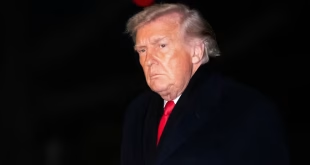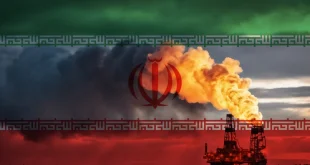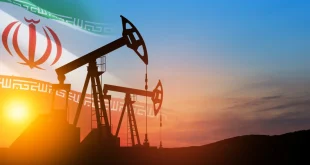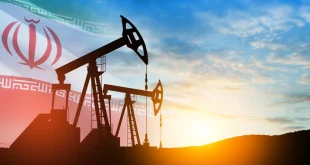On May 11, Turkish opposition candidate Muharren Ince announced that he was dropping out of the upcoming presidential elections, allegedly due to, in his words, a “smear campaign” that is “the work of the Gülenist Terror Group” (Daily Sabah, May 11). As one of four opposition candidates running against Turkish President Recep Tayyip Erdogan, some analysts point out that Ince’s withdrawal will lessen divisions in the opposition and improve those candidates’ chances to unseat Erdogan, especially for Republican People’s Party leader Kemal Kılıçdaroğlu. Erdogan, commenting on this development, merely stated, “I wonder what made him drop out of the race. I wish we could continue the race with him.” In recent weeks, the Turkish president’s health has been in question after he canceled a number of rallies, and the impact of this development on the election’s outcome remains uncertain (Birgun.net, April 28).
Overall, the upcoming presidential elections in Turkey on May 14 are crucial for several reasons. To begin with, it is a significant test for Erdogan, who has been in power for more than two decades. His authority has largely been maintained through a combination of authoritarian tactics and popular support, though his popularity has been on the decline recently. And recent polls show the so-called “Table of Six” opposition candidate, Kılıçdaroğlu, leading Erdogan at 49.3 to 43.7 percent, respectively (TVP World, May 11).
The Russian government’s approach to the elections in Turkey appears to be driven by geo-strategic and geopolitical reasons, including defending its interests in the region, particularly in Syria and the South Caucasus (Memri, April 17). If Erdogan wins, it seems that Russia can once again rely on Turkey to help balance the influence of the United States and European Union. However, if Erdogan loses, Russia may face significant security challenges that could have far-reaching implications.
Yet, in truth, while Moscow may prefer Erdogan’s reelection, others point out that a triumph by an opposition candidate does not guarantee a disruption in Turkish-Russian relations (Memri, April 17). Opposition favorite Kılıçdaroğlu has criticized Erdogan’s foreign relations with Russia, especially considering the Syrian conflict. However, if he wins the election, it is unclear how his policies toward Russia would differ from Erdogan’s. Furthermore, Kılıçdaroğlu has voiced his openness to expanding cooperation with China—something that could disrupt Ankara’s relations with the West (Aa.com.tr, January 14).
Nevertheless, according to some Turkish media outlets, Putin does indeed favor Erdogan. In this, several Russian experts are cited who believe that Putin sees Erdogan as a reliable partner, which is crucial as Moscow has invested heavily in Turkey through various projects, including the TurkStream pipeline. They also suggest that the Kremlin may have attempted to interfere in previous Turkish elections to ensure Erdogan’s victory—though they provide little evidence for such a claim (Tr24, April 1; Yeni Safak, April 7).
Additionally, the outcome of the election will have significant implications for Russian interests in the region, including on energy and security matters. Russia relies on Turkey as a vital transit country for gas exports, and the two countries enjoy a robust economic alliance in the energy sector, including the Kremlin’s assistance with the Akkuyu Nuclear Power Plant (Tr24, April 18). On April 27, this power plant received “fresh nuclear fuel” on April 27 to be used in the generation of energy. As a result, the facility was technically inaugurated and given the official designation of a “nuclear power plant” (NTV, April 27).
In December 2022, Russian President Vladimir Putin voiced his interest in creating a natural gas hub in Turkey, which would enable Russia to transport natural gas to Europe. This project has been discussed for several years between the two sides, but no significant progress has been made due to various issues, including pricing disagreements and Ankara’s pursuit of a more independent energy policy (Hurriyet.com.tr, December 15, 2022). A natural gas hub in Turkey could have significant economic benefits for both Russia and Turkey, as it would increase the flow of natural gas to Europe and provide an additional route for transit (Milliyet, October 12, 2022).
However, while Russia represents an important energy partner for Turkey, Ankara has been increasingly sure to balance Moscow’s influence by making in-roads with other countries. For example, in 2022, the US and Europe became Turkey’s second- and fourth-largest suppliers of liquefied natural gas, respectively (Al-Monitor, April 25, 2022; Daily Sabah, May 6, 2022). Furthermore, in early April 2023, Azerbaijan announced its intentions to increase natural gas imports to Turkey by 19 percent to 10 billion cubic meters (Euronews, April 2). Thus, while by no means a guarantee, there is a possibility that a victory for an opposition candidate could mean turning away from cooperation with Russia, which may provide a pretext for Moscow’s interference in these Turkish elections, as some have predicted, to prevent such a development (Middle East Eye, April 18).
Indeed, the upcoming elections are sure to have an impact on Turkish relations with the United States and the EU. Overall, while at times at odds with Turkey’s Western allies, Erdogan has proven himself to be a critical partner, not only in regional security matters, such as providing drones to Ukraine and closing the Turkish Straits, but also in managing wider crises, such as Europe’s migrant crisis back in 2016–2017 as well as the more recent Ukrainian grain deal (Al Jazeera, March 1, 2022, July 19, 2022; Euronews, April 2; Radio Free Europe/Radio Liberty, May 3). Yet, if Erdogan wins, the country may chart a path of increased independence and authoritarianism, which might strain relations with the West. Others have speculated that, if Erdogan loses, it could potentially lead to a more democratic and liberal Turkey, though this is far from a foregone conclusion. Erdogan is a known entity for the West, and, while he may present some obstacles, if he is re-elected, both Washington and Brussels would largely know what to expect in working with the Turkish president. In contrast, uncertainty abounds as to how a victory by an opposition candidate would affect Ankara’s relations with the West.
Thus, the outcome of Turkey’s presidential elections will be vital in shaping its foreign policy approach moving forward. Currently, Ankara seeks to strike a balance between maintaining its own sovereignty, cooperation with Russia and commitments to its Western allies. If a new government indeed comes to power, it is difficult to predict how this will affect overall relations with Moscow, Brussels, Washington and even Beijing. Nevertheless, regardless of the outcome, Turkey can be expected to continue pursuing an independent foreign policy and further capitalize on its position as a regional leader in energy and security.





